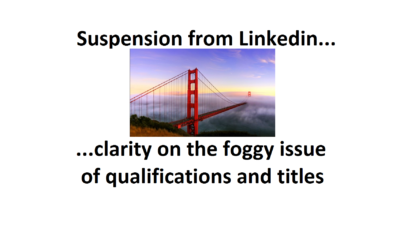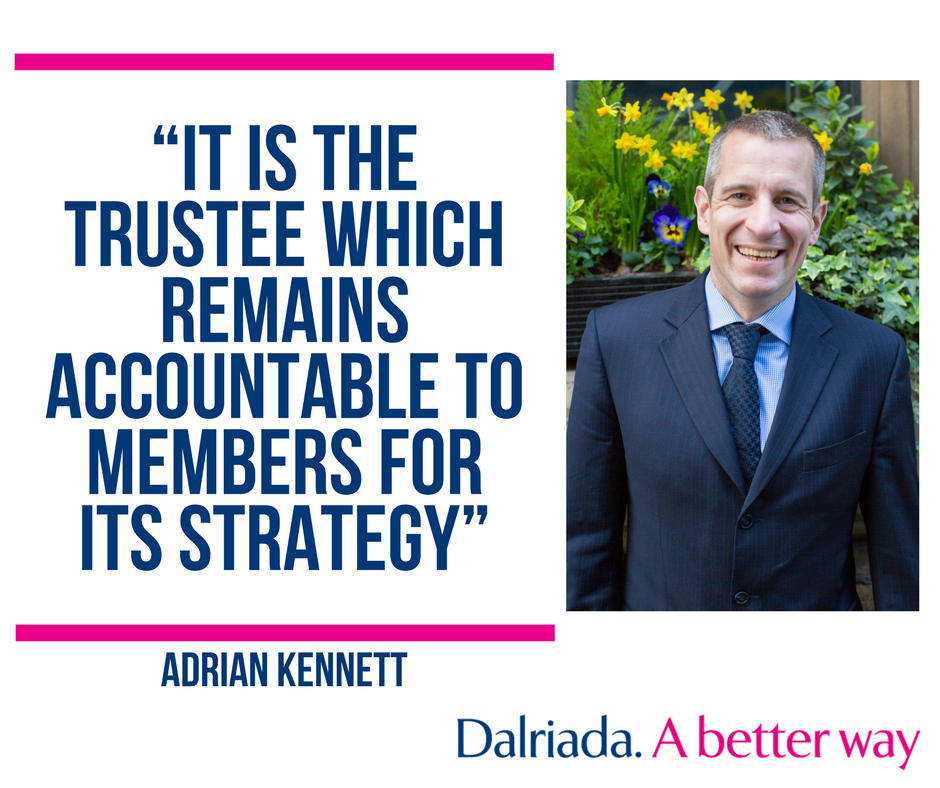 At Pension Life, we write about the good, the bad and the ugly faces of pension and investment news. Unfortunately, there is rarely much good – and quite frequently a lot of bad and ugly news. Using social media like Linkedin and Facebook, we get our blogs out to the masses – because that’s what social media is for – right? To share information with others worldwide, is the whole point of social media. However, it would seem freedom of speech through Linkedin is limited: Linkedin – locked out.
At Pension Life, we write about the good, the bad and the ugly faces of pension and investment news. Unfortunately, there is rarely much good – and quite frequently a lot of bad and ugly news. Using social media like Linkedin and Facebook, we get our blogs out to the masses – because that’s what social media is for – right? To share information with others worldwide, is the whole point of social media. However, it would seem freedom of speech through Linkedin is limited: Linkedin – locked out.
For over a week, my Linkedin account was suspended. I was forced to provide a copy of my passport, presumably to prove I really was Angie Brooks of Pension Life. The fact that my Twitter account, and all of my emails, are transparent to this Linkedin profile seemed to make no difference to the suspension.
Linkedin state that they suspended my account because of multiple accusations of defamation. They did not disclose who the accusers were, and did not ask me for my side of the story.
I’ve been wracking my brains to think who might have done this – trouble is, I have so many fans that it is hard to choose which ones might have complained to Linkedin about (alleged) defamation. Another problem I have is that reporting the truth – as in truth backed up by hard evidence which is in the public domain – seems to upset some people. So much so, in fact, that they then tell Linkedin I’ve been defaming them!
Here’s an example: Woodbrook Group. They continue to advertise themselves and their employees as a qualified firm of financial advisers. Those of you who read Woodbrook Group – qualified and registered? will know that just one of the 26 employees listed as working for the firm was actually qualified and registered to give financial advice. Plus the firm was happy to advertise that they used structured products – which are totally unsuitable investment “avenues” for a pension (but that is another blog!).
In fact, most of the blogs about unlicensed firms with unqualified so-called advisers will, undoubtedly, ruffle some feathers. However, Matthew Cowan of the CISI felt it appropriate to comment on one of the Pension Life blogs in order to qualify the “qualified” issue – and I am most grateful to him for doing so.
| Matthew Cowan [email protected] 62.233.65.82 |
Dear [email protected]
As the Regional Director for the Chartered Institute for Securities & Investments (CISI) I wish to contribute to this discussion. The CIS works with Regulators across the globe and exists to raise standards of professionalism for the consumer benefit. Being Chartered we are an educational charity. Different regulators have different qualification requirements for financial services practitioners and indeed some regulators have no qualification requirements at all. One of my key responsibilities is to work with regulators to set minimum standards of competence through initial qualifications and ongoing learning and through the promotion of integrity and ethical conduct. Across the Middle East many regulators have now adopted structured and demonstrable minimum competency standards. In the UAE specifically the Securities & Commodities Authority (SCA) require Financial Consultants/Analysts licenced by them to undertake a series of (level 3) qualifications supplied and set by the CISI. The latest framework is here:-https://www.sca.gov.ae/Arabic/News/Documents/chart-license.pdf The Insurance Authority who also regulate some financial services companies are considering the introduction of minimum competency standards through qualifications. To be regulated as a retail adviser in the UK the FCA sets a minimum standard of a level 4 qualification and we are one of a number of awarding bodies for the FCA. We would like to see this minimum standard in the UAE and other jurisdictions and I will continue to support the regulators in introducing this standard. Membership of a professional body outside the UK is a voluntary activity and one which is only available to individuals who have taken qualifying exams (ours or recognised by us). It is not automatic or mandatory, but does in part demonstrate an individuals commitment to professionalism and ongoing learning through Continuous Professional Development (CPD). Once a member, individuals can use designatory letters which demonstrate they are a member of a professional body. The CISI is not a trade body. Many regulators outside of the UK have not mandated the membership of a professional body, although some have now introduced mandatory CPD and I expect this trend to continue. CISI are one vehicle to achieve the CPD requirements. Joining a professional body requires that individuals signup to a code of conduct and commit to integrity and ethical behaviour. It is important however to highlight we do not regulate the sector, this is the function of the regulator who sets and supervises standards of market conduct. The membership register that we publish contains details of those individuals who are qualified to a level we recognise and who have chosen to belong to a professional body. Not being listed on this membership register does not in itself confirm or imply that someone has not taken professional exams. We do not publish a register of exams taken by individuals. We conduct regular screening of the market and where we find individuals using CISI designatory letters who are not members we request that they join (if they meet the criteria) or insist they stop passing off as members. I hope that your team and readers find this information useful. Matthew Cowan Chartered MCSI CeMap |

 I wonder if this blog will trigger another suspension?
I wonder if this blog will trigger another suspension?